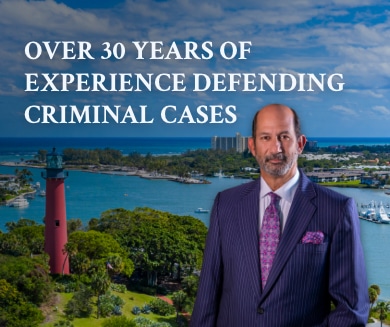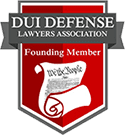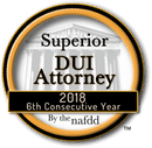Legally Reviewed By:
Brian P. Gabriel, Esquire
Embezzlement
 Embezzlement is the misappropriation of funds or other property by a person who was entrusted to use these funds or property for another purpose. Usually, this occurs when an employee steals from an employer, such as when an employee takes money from the cash register or when high-end executives transfer large sums of money into their personal accounts.
Embezzlement is the misappropriation of funds or other property by a person who was entrusted to use these funds or property for another purpose. Usually, this occurs when an employee steals from an employer, such as when an employee takes money from the cash register or when high-end executives transfer large sums of money into their personal accounts.
Though there is no formal state statute which defines it, embezzlement is a type of theft crime that can lead to severe penalties upon conviction and even after a person has served his sentence because of the implications of dishonesty. A person convicted of embezzlement may have trouble ever acquiring a position at a place of work or school, and may even have difficulty finding a place to live. If you face embezzlement charges in West Palm Beach, preserve your reputation with the aid of an experienced criminal defense attorney.
West Palm Beach Embezzlement Charges
Embezzlement is a white collar crime that can involve simple or elaborate schemes to use another’s assets for personal gain. This offense most often takes place in the employer-employee relationship. Common employee embezzlement schemes include:
- Spending from client funds or accounts
- Altering receipts or account information
- Under-reporting profits
- Creating false vendor accounts
- Creating phantom employees
Additionally, embezzlement may be a federal crime in the following scenarios:
- When public money, property, or records are misappropriated.
- When tools and materials used in counterfeiting are embezzled including stamps, printing devices, and more.
- When public money is misappropriated by federal officers, employees, or agents.
- When someone keeps public funds that are not owed to that person.
- When one steals or fraudulently obtains a major work of art or items from a museum.
- Embezzling from a health care benefit plan.
- Other scenarios are possible.
Embezzlement May Be a Misdemeanor or Felony Offense
The charges against a person accused of embezzlement may be misdemeanor or felony in nature. As with any theft crime, the primary factor that determines the severity of the charge is the sum of money or total value of the property that you allegedly misappropriated. The penalties you may face may increase exponentially if you face federal embezzlement charges. The penalties listed below apply to state embezzlement charges.
Elements of Embezzlement
Prosecutors must show proof of four conditions to charge a person with embezzlement:
- The property must belong to a person other than the accused, such as an employer, with whom the defendant had a fiduciary relationship
- The defendant must have acquired the property through his fiduciary relationship with the owner
- The defendant must have taken ownership of the property without the owner’s consent. This is sometimes known as “conversion.”
- The defendant intentionally took ownership of the property without the rightful owner’s consent
Penalties for State Embezzlement Charges
Embezzlement is a second-degree misdemeanor when the misappropriated funds or the value of the misappropriated assets falls below $100. One can face up to 60 days in jail and/ or fines of up to $500 for this offense as a state crime.
Embezzlement becomes a first-degree misdemeanor offense at a value of $100 or more, but not more than $300. This can lead to a year in jail and a fine of up to $1,000 as a state crime.
You can face felony charges for embezzling over $300. Third-degree felony charges await when $300 or more but less than $20,000 are embezzled. One can face up to 5 years in a state prison and a fine of up to $5,000.
Second-degree felony embezzlement charges are reserved for values of $20,000 or more but less than $100,000. One can face up to 15 years in prison and a fine of up to $10,000.
When more than $100,000 are embezzled, first-degree felony charges apply. One can face up to 30 years in state prison and a fine of up to $10,000.
Potential Defenses to Embezzlement
It is not impossible to successfully defend an embezzlement charge. There are many approaches a skilled criminal lawyer can take depending on the facts of your case.
- Insufficient evidence: If there is not clear and irrefutable evidence that embezzlement took place, the prosecutor will likely toss the case
- Duress: If there is proof that you believed you were in danger of harm if you did not commit the crime, the State may drop the charge against you
- Absence of Intent to Commit a Crime: The prosecutor in your case must show that you intended to commit embezzlement to gain a conviction. If there was no intent to commit a crime, it may not be possible to proceed with the case. It is possible, for example, that you reasonably believed you were already the owner of the property or assets you allegedly took.
Embezzlement Defense in Palm Beach County
Do not hesitate to contact a criminal defense attorney in West Palm Beach to fight embezzlement charges against you the moment you discover you are named in an investigation. Attorney Brian Gabriel of The Law Office of Gabriel & Gabriel has served Palm Beach and surrounding counties for over 30 years providing thorough and competent legal representation to those facing a number of theft charges, including embezzlement. You can trust him to provide a thorough and competent legal defense. Receive a free case evaluation by calling 561-622-5575 or complete a contact form.










